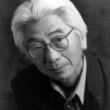America for Americans: a history of xenophobia in the United States
Description
More Details
Table of Contents
From the Book - First edition.
Subjects
Immigrants -- United States -- History
Minorities -- United States -- History
Multi-Cultural
National characteristics, American -- History
Nationalism -- United States -- History
Nonfiction
Sociology
United States -- Emigration and immigration -- History
United States -- Race relations -- History
Xenophobia -- United States -- History
Similar Titles From NoveList
Similar Authors From NoveList
Published Reviews
Choice Review
Lee (Univ. of Minnesota) chronicles the history of fear and antagonism toward immigrants in the US from the Colonial era to the present. Although the country is traditionally viewed as a nation of immigrants, the author describes in vivid detail recurring patterns of xenophobia and the political and legal consequences that have ensued over time. She begins with an account of the hostility toward German immigrants in the Pennsylvania colony during the 18th century before proceeding to the 19th century, covering the anti-Catholic, anti-Irish "Know Nothing" movement and the racist and bigoted campaign against Chinese immigrants. The study then turns to the wave of xenophobia in the early to mid-20th century, which targeted immigrants from Mexico and Southern and Eastern Europe and contributed to the internment of Japanese-Americans during WW II. Lee concludes by examining the most recent and ongoing episode of xenophobia--the fear, anger, and prejudice directed toward Hispanic and Muslim immigrants. This well-written, well-researched, accessible, engaging, and important book provides insight into an all too often neglected aspect of US history and highlights the ever-changing nature of what it means to be an American. Summing Up: Highly recommended. All readership levels. --Thomas Davis, Lake Erie College
Publisher's Weekly Review
As University of Minnesota historian Lee (The Making of Asian America) demonstrates in this fascinating but disturbing study, xenophobia is not "an exception to America's immigration tradition" but is as American as apple pie. Moreover, hostility to migrants, she argues, has derived far more from racist ideologies than it has from anxieties about foreign policy or economic concerns. Lee takes a chronological approach to this topic, starting with Benjamin Franklin's fears regarding newly arrived Germans in pre-Revolutionary Pennsylvania and moving on to the mid-19th-century "Know Nothing" party's hatred for Irish Catholics, the federal government's exclusion of Chinese migrants at the end of the 19th century, the Bostonian intellectual elite's early-20th-century dismissal of Jews and Eastern Europeans as "beaten men from beaten races" in the early 20th century, and the demonization of Japanese immigrants for decades prior to Pearl Harbor. While readers might be tempted to see these events as dark but foregone moments in the nation's history, Lee's later sections make it clear that similar anxieties continue to legitimize fear and hatred of Mexicans and Muslims, and even of "model minority" groups of Asian Americans. She persuasively expresses that current hostilities over national borders are no exception to the nation's history. This clearly organized and lucidly written book should be read by a wide audience. (Nov.)
Library Journal Review
Part of the American mythos is that America is a nation of immigrants. While there is truth in that, Lee (history, Univ of Minnesota; The Making of Asian America: A History) exposes another truth: America is also a nation of xenophobes. This book examines different episodes of xenophobia in American history, from Benjamin Franklin's writings against German immigrants in the mid-18th century and the Know Nothings' campaigns against Irish immigrants and the Chinese Exclusion Act of the 19th century to the 1924 Immigration Act and Japanese-American internment of the early 20th century, discrimination against Mexican and Muslim immigrants in recent decades, and more. Immigration restriction is a central hallmark of President Trump's administration. Lee reveals that the rhetoric Trump and his supporters employ when speaking about immigration and immigrants--fears about bringing crime, taking away jobs, failing to assimilate--has long been part of American political discourse from Colonial times to the present. VERDICT This thoroughly researched, informative, and lucid work is essential reading for anyone interested in the history of anti-immigrant sentiment in the United States, and how it influences the current political environment.--Joshua Wallace, Tarleton State Univ. Lib. Stephenville, TX
Kirkus Book Review
Thoroughgoing survey of an old strain in American history: racial and cultural animus toward newly arrived non-Americans."The target of our xenophobia may have changed from decade to decade, but our fear and hatred of foreigners has not." So writes Lee (Chair, Immigration History/Univ. of Minnesota; The Making of Asian America: A History, 2015, etc.), opening her discussion with examples from the last electoral cycle and the current occupant of the White Housewho, though his statements are "either patently false or grossly misleading," nevertheless cannily taps into that ancient fear. Xenophobia is a powerful motivating factor in American politics, writes Lee, even if it goes against the equally powerful notion that the U.S. is a nation of immigrants. "Even as it has welcomed millions from around the world," she observes, "it has also deported more immigrants than any other nationover fifty-five million since 1882." Even as the current administration is widening its field of targets to include legal as well as illegal immigrants and to curtail both, it draws on former movements: the Know-Nothings of the 19th century, for instance, who "argued that Catholicism and Catholics were dangerous to American values and institutions"and it's no accident that the Hispanic migrants are mostly Catholic, even as Islam is also singled out for exclusion today. Lee charts various movements in the nation's history, from Benjamin Franklin's lament even before the Revolution that German immigrants would not be able to assimilate to anti-Irish measures in the years around the Civil War, and then the fervor those very Irish exercised in opposing immigration by Italians, Asians, and Jews. Throughout, the author notes that xenophobia is good business for its purveyorspoliticians, TV commentators, radio hosts, and the likeand it is likely to remain a point for those people to flog in the coming election, as the president proclaims, "Our country is full."A carefully constructed history of wide interest to students of American politics. Copyright Kirkus Reviews, used with permission.
Library Journal Reviews
Part of the American mythos is that America is a nation of immigrants. While there is truth in that, Lee (history, Univ of Minnesota; The Making of Asian America: A History) exposes another truth: America is also a nation of xenophobes. This book examines different episodes of xenophobia in American history, from Benjamin Franklin's writings against German immigrants in the mid-18th century and the Know Nothings' campaigns against Irish immigrants and the Chinese Exclusion Act of the 19th century to the 1924 Immigration Act and Japanese-American internment of the early 20th century, discrimination against Mexican and Muslim immigrants in recent decades, and more. Immigration restriction is a central hallmark of President Trump's administration. Lee reveals that the rhetoric Trump and his supporters employ when speaking about immigration and immigrants—fears about bringing crime, taking away jobs, failing to assimilate—has long been part of American political discourse from Colonial times to the present. VERDICT This thoroughly researched, informative, and lucid work is essential reading for anyone interested in the history of anti-immigrant sentiment in the United States, and how it influences the current political environment.—Joshua Wallace, Tarleton State Univ. Lib. Stephenville, TX
Copyright 2019 Library Journal.Publishers Weekly Reviews
As University of Minnesota historian Lee (The Making of Asian America) demonstrates in this fascinating but disturbing study, xenophobia is not "an exception to America's immigration tradition" but is as American as apple pie. Moreover, hostility to migrants, she argues, has derived far more from racist ideologies than it has from anxieties about foreign policy or economic concerns. Lee takes a chronological approach to this topic, starting with Benjamin Franklin's fears regarding newly arrived Germans in pre-Revolutionary Pennsylvania and moving on to the mid-19th-century "Know Nothing" party's hatred for Irish Catholics, the federal government's exclusion of Chinese migrants at the end of the 19th century, the Bostonian intellectual elite's early-20th-century dismissal of Jews and Eastern Europeans as "beaten men from beaten races" in the early 20th century, and the demonization of Japanese immigrants for decades prior to Pearl Harbor. While readers might be tempted to see these events as dark but foregone moments in the nation's history, Lee's later sections make it clear that similar anxieties continue to legitimize fear and hatred of Mexicans and Muslims, and even of "model minority" groups of Asian Americans. She persuasively expresses that current hostilities over national borders are no exception to the nation's history. This clearly organized and lucidly written book should be read by a wide audience. (Nov.)
Copyright 2019 Publishers Weekly.





























